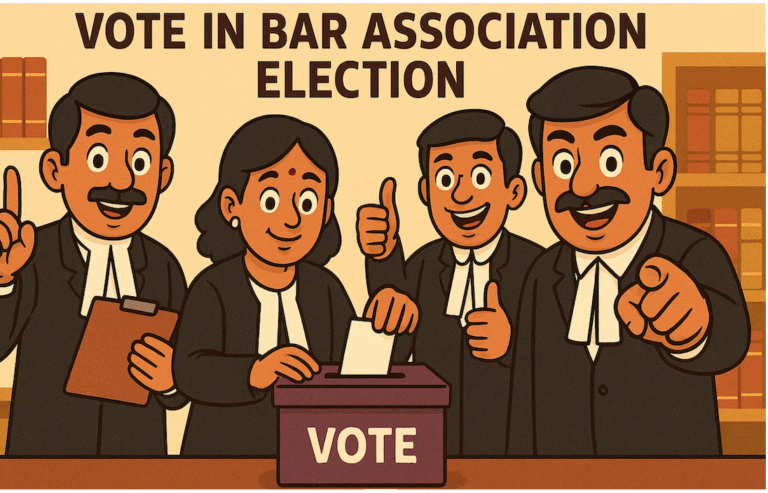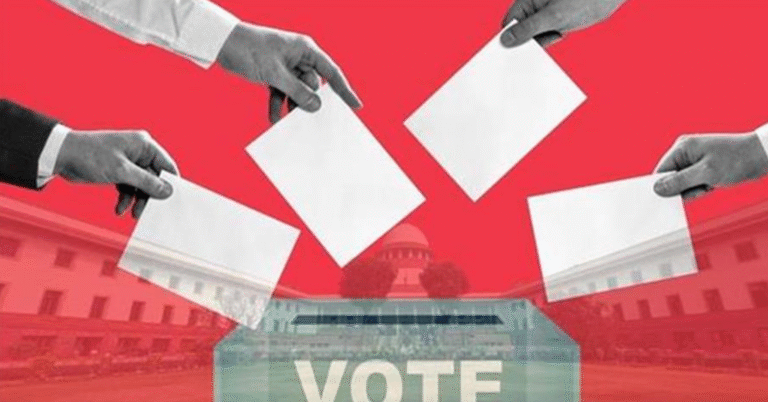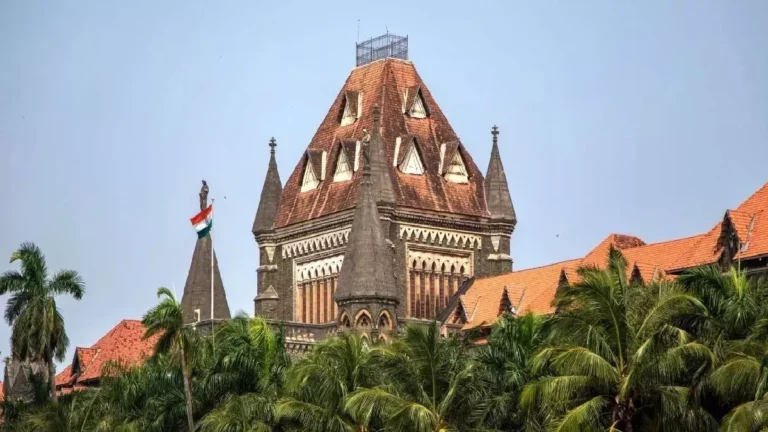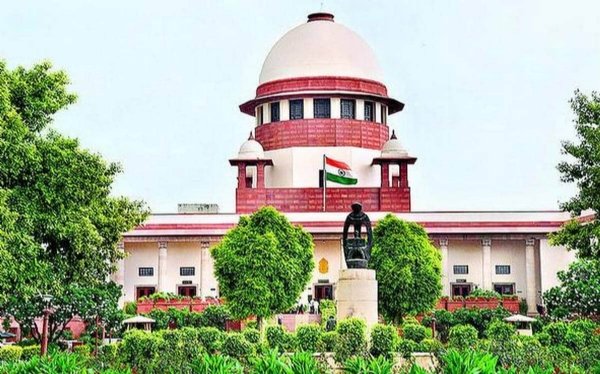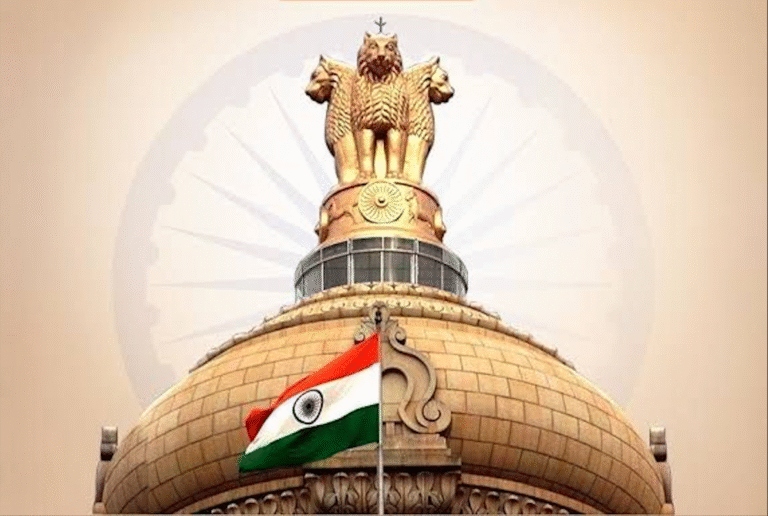Senior Advocate Harish Salve had, in the past, gracefully recused himself as Amicus Curiae in the contempt case against Adv. Prashant Bhushan, after it was pointed out that contempt is a criminal offence, and therefore only State Law Officers such as the Attorney General or Solicitor General can assist the Court in conducting the prosecution.

This principle now lies at the centre of a fresh legal debate, as the Bombay High Court’s order appointing two private counsels as Amicus Curiae—despite the Advocate General already being appointed—and permitting four prosecutors to simultaneously conduct a contempt case has been challenged before the Hon’ble Supreme Court by Adv. Nilesh Ojha, who has also sought tagging of this Appeal with his earlier admitted Writ Petition.
The identical issue is already sub judice in the writ petitions filed by Adv. Vijay Kurle, Adv. Nilesh Ojha, and Shri Rashid Khan Pathan, which stand tagged with the writ petition filed by Adv. Prashant Bhushan. All four petitions have been admitted by the Hon’ble Supreme Court, and, as per the latest update from the Registry, are likely to be listed on 26.11.2025 before the Bench of Hon’ble Justice M.M. Sundresh. Appeal Filed by Adv. Nilesh Ojha Before the Supreme Court against the orders of the Bombay High Court.
Earlier, even a Three-Judge Bench of the Hon’ble Supreme Court had refused to permit Adv. Siddharth Luthra to continue as Amicus Curiae in a contempt matter. He was required to withdraw in disgrace after the Court realized that only State Law Officers may conduct prosecution in criminal contempt, and accordingly appointed the Attorney General for India in his place. This episode was further marred by controversy over his alleged attempt to mislead the Supreme Court by relying upon overruled judgments, a matter that drew sharp criticism from the legal fraternity.
Meanwhile, sixteen advocates have filed petitions seeking initiation of criminal contempt proceedings as well as disciplinary action for professional misconduct against Adv. Darius Khambata and Adv. Milind Sathe for relying upon overruled judgments, suppressing binding precedents, and concealing crucial material documents and orders of the Chief Justice of India, to falsely implicating advocates while functioning as private Amici Curiae.
Appeal Filed by Adv. Nilesh Ojha Before the Supreme Court
Adv. Nilesh Ojha has filed an Appeal before the Hon’ble Supreme Court challenging the two orders dated 17.09.2025 and 16.10.2025 passed by the Five-Judge Bench of the Bombay High Court in the suo motu contempt proceedings.
[Appeal Diary No. 64987/2025, Nilesh Ojha v. High Court of Bombay]
Along with the Appeal, an Application has been filed seeking tagging of this Appeal with his already admitted Writ Petition (Crl.) No. 244/2020, since many of the legal issues arise from a common constitutional matrix.
The writ petitions filed by Adv. Prashant Bhushan, Adv. Nilesh Ojha, Adv. Vijay Kurle, and Shri Rashid Khan Pathan raise issues of historic constitutional significance, particularly the denial of the fundamental right to one statutory appeal against an order of conviction passed by the Supreme Court in contempt matters.
Satisfied with the preliminary submissions, the Hon’ble Supreme Court’s Three-Judge Bench admitted these petitions by order dated 17.05.2022 and issued notices to the Union of India and all concerned authorities.
Key Questions Before the Supreme Court
The writ petitions raise several crucial issues, including:
(i) Overruling of Contempt Judgments :- A declaration that the following judgments stand overruled, outdated, or no longer good law due to statutory amendments and later larger-bench decisions: Re: Vijay Kurle (2021) 13 SCC 616 ; Pritam Pal (1992) ; C.K. Daphtary (1971); D.C. Saxena (1996).
(ii) A declaration that contempt, being a criminal offence, must be prosecuted only by State Law Officers, and that private counsels cannot be appointed as Amicus Curiae to conduct prosecution, in line with Rule 10 of the Supreme Court Rules and binding precedents.
(iii) Prosecution for Misconduct in Generating False Record :- Directions to prosecute Adv. Milind Sathe and Mr. Kaiwan Kalyaniwalla for allegedly creating forged records, suppressing communications from the Chief Justice of India rejecting their request for cognizance, and still managing to obtain suo motu cognizance through Justice Rohinton Nariman — which was later exposed by the Supreme Court Registry.
(iv) Compensation:- Compensation for malicious prosecution and violation of constitutional rights under Articles 14, 19, and 21.
Additional Issues Raised in the Appeal (Beyond the Admitted Writ Petitions)
The Appeal filed by Adv. Nilesh Ojha brings forth several further constitutional and procedural violations, including:
(i) Direct refusal of the Bombay High Court Chief Justice to follow binding Supreme Court precedents, contrary to Articles 141 and 144.
(ii) Threats to advocates that they would be taken into custody if they cited multiple Supreme Court judgments.
(iii) Refusal to recuse without giving reasons and proceeding with the case despite a clear conflict of interest, rendering the Chief Justice disqualified, and requiring constitution of a Special Bench.
(iv) Appointment of two private Amici Curiae even after the Advocate General was appointed, contrary to the rule that criminal contempt must be prosecuted only by State Law Officers.
(v) Allowing multiple prosecutors and Amici to argue simultaneously, an unprecedented procedural deviation violating Articles 14 and 21 of the alleged contemnor.
Background: Harish Salve’s Recusal and Supreme Court’s Clarification
This case has revived discussion of the earlier incident where Sr. Adv. Harish Salve, in the contempt matter against Adv. Prashant Bhushan, voluntarily discontinued as Amicus Curiae.
This was after Sr. Adv. Rajiv Dhawan pointed out:
- Rule 10 of the Supreme Court (Contempt) Rules
- And several binding judgments which hold that contempt is a criminal proceeding, and that the alleged contemnor is entitled to the all the protections and safeguards guaranteed to an accused in a criminal trial.
The Supreme Court has reiterated this principle in many cases, including:
- Hari Dass v. State, AIR 1964 SC 1773 (3-J)
- P. Mohanraj v. Shah Bros. Ispat (P) Ltd., (2021) 6 SCC 258 (3-J)
- Khushi Ram v. Sheo Vati, (1953) 1 SCC 726 (4-J)
Further, in Vinay Chandra Mishra, In Re, (1995) 2 SCC 584, the Three-Judge Bench appointed the Solicitor General to conduct prosecution, and approvingly cited Lord Denning’s observation in Balogh’s case, stressing that a Judge must not become both prosecutor and adjudicator. This principle has been reaffirmed in Suo Motu v. S.B. Vakil, 2006 SCC OnLine Guj 102.
Fundamental Principle: Only State Law Officers Can Conduct Criminal Prosecution:-
In India, the constitutional mandate is clear:
Criminal prosecution must be conducted only by State Law Officers. It is ruled by the Supreme Court that, permitting private counsel to lead criminal proceedings undermines fairness, objectivity, and neutrality, and amounts to a direct violation of the accused’s fundamental rights. The Supreme Court has held that involvement of private counsel in prosecution: vitiates the trial, conviction and sentence as it violates Articles 14 and 21, and renders the process inherently unfair.
This principle is reflected in:
· Shiv Kumar v. Hukam Chand, (1999) 7 SCC 467
· Medichetty Ramakistiah v. State of A.P., 1959 SCC OnLine AP 303
· Sundeep Kumar Bafna v. State of Maharashtra, (2014) 16 SCC 623
International Parallel: U.S. Supreme Court Same View
Even the Nine-Judge Bench of the United States Supreme Court has ruled similarly.
In Young v. United States ex rel. Vuitton et Fils S.A., 1987 SCC OnLine US SC 95 the Court held that appointing private counsel to conduct contempt prosecution is an incurable defect and vitiates the entire proceeding.
In Robertson v. United States, 2010 SCC OnLine US SC 51 the Supreme Court held that criminal contempt must be prosecuted only on behalf of the Government, not a private party.
Case of Appointment and Subsequent Discontinuation of Private Amicus Siddharth Luthra
In a significant and controversial chapter of contempt jurisprudence, a Bench of Justice Deepak Gupta (Retd.) and Justice Aniruddha Bose, vide order dated 30.09.2019, appointed Adv. Siddharth Luthra as Amicus Curiae in the contempt proceedings initiated against several advocates.
The controversy surrounding this appointment reached a decisive turning point when the Larger Bench of the Hon’ble Supreme Court, in Vijay Kurle, In Re, formally discontinued Mr. Luthra from acting as Amicus and directed that only the Attorney General for India would continue to assist the Court. Mr. Luthra was required to withdraw in disgrace after the Court realized with the legal principle that in criminal contempt prosecutions, only State Law Officers may appear, and private counsel cannot be permitted to conduct or assist in such prosecutions.
This episode was further exacerbated by allegations that Mr. Luthra had attempted to mislead the Supreme Court by relying on overruled judgments, suppressing binding precedents, and advancing positions contrary to Constitution Bench rulings—conduct which was sharply criticised across the legal fraternity.
Adv. Luthra had misled the Court by relying on overruled judgments, suppressing binding precedents, and advancing a legal position contrary to established constitutional law. The Judges who had initially relied on his submissions—trusting him as an officer of the Court—were later placed in a difficult position when their orders were overturned, criticised, and declared contrary to binding precedent.
Contentious Submissions of Adv. Siddharth Luthra
During the hearing, Adv. Siddharth Luthra advanced several arguments which struck at the very foundation of constitutional discipline and judicial precedent. His submissions included:
1. That the judgments of the Three-Judge Bench and Constitution Bench of the Supreme Court are not binding, and that the Supreme Court is free to disregard larger-bench decisions; that instead, the Two-Judge Bench decision in Pritam Pal should prevail, enabling the Court to punish citizens or advocates at its discretion, without adherence to statutory procedure.
2. That the procedural safeguards laid down in P.N. Duda regarding cognizance of contempt were merely obiter dicta and not mandatory.
3. That even if a Judge is corrupt or acts improperly, no citizen or advocate may raise a complaint, and even truth or bona fide allegations may be punished with contempt.
All These Propositions Already Overruled by Larger Benches
Every one of these submissions stood squarely overruled by Constitution Benches and Full Benches of the Supreme Court in:
· Bal Thackeray v. Harish Pimpalkhute, (2005) 1 SCC 254
· Subramanian Swamy v. Arun Shourie, (2014) 12 SCC 344;
· Bathina Ramakrishna Reddy v. State of Madras, 1952 SCR 425;
· P. Mohanraj v. Shah Bros. Ispat (P) Ltd., (2021) 6 SCC 258
· Indirect Tax Practitioners’ Assn. v. R.K. Jain, (2010) 8 SCC 281
· Hari Das v. State of West Bengal, (1964) 7 SCR 237
These binding decisions clearly establish the following principles:
(i) The directions laid down in P.N. Duda are mandatory and must be strictly followed in all contempt proceedings, including the procedure for taking cognizance.
(ii) The judgment in Pritam Pal stands overruled, and courts are unequivocally bound by the Contempt of Courts Act, 1971, as well as by the larger-bench constitutional framework governing contempt jurisdiction.
(iii) Every citizen has a constitutional duty under Article 51-A to expose judicial misconduct and to bring the truth regarding a Judge’s wrongdoing into the public domain. When such disclosure is based on truth, evidence, and bona fide material, it cannot be turned into a ground for contempt at the instance of sycophantic elements.
Frivolous or malicious initiation of contempt proceedings in such circumstances renders the initiator liable for prosecution under Sections 211 and 192 of the Indian Penal Code, and also liable to compensate the alleged contemnor for misuse of process and harm caused.
Two judge Bench Relied on Overruled Law; strongly criticized by legal fraternity.
Despite this binding legal framework, the Bench comprising Justice (Retd.) Deepak Gupta and Justice Aniruddha Bose relied on overruled judgments and ignored the mandatory larger-bench precedents in:
· In Re: Vijay Kurle, 2020 SCC OnLine SC 407
· Prashant Bhushan, In Re, (2021) 1 SCC 745
This triggered widespread criticism across the legal fraternity. The judgments were challenged directly before the Supreme Court in writ petitions filed by: Adv. Prashant Bhushan, Adv. Nilesh Ojha, Adv. Vijay Kurle, and Shri Rashid Khan Pathan.
These judgments were denounced widely on social media; public commentary even termed the two Judges as “Mr. Overruled Judges” for misuse of discretion in relying on overruled judgments and refusing to follow binding constitutional precedents. Complaints seeking sanction to prosecute them were filed before the President of India.
Scholarly Criticism by Contempt Law Expert Sr. Adv. Asim Pandya
Amidst the widespread debate, Senior Advocate Asim Pandya, a leading authority on contempt law and author of a reputed book on the subject, published a detailed article in LiveLaw on 16.09.2020, titled:
“Arrogation of Unlimited Contempt Power by The Supreme Court – A Hornets’ Nest Stirred Up Again”
In this article, he meticulously explained how the judgments in Re: Vijay Kurle and Re: Prashant Bhushan were erroneous, contrary to binding precedents and statutory mandates, and inconsistent with settled constitutional jurisprudence.
His critique further strengthened the position that the Bench had incorrectly disregarded mandatory procedures, relied on overruled judgments, and resurrected doctrines already rejected by Constitution Benches.
There after the writ petitioners came for hearing on 17.05.2022 before the Three Judge Bench of the Supreme Court.
On that day Sr. Adv. Rajiv Dhavan, Adv. Nilesh, Adv Vijay Kurle, Adv Anand Jondhale and around 200 advocates of the Supreme Court appeared in the support of the Writ Petition. At that time Adv. Siddharth Luthra who took stand against advocate appeared and tried to make submissions but the Chief Justice of India did not allow him to argue by saying that his role is over and now the Court has decided to appoint Attorney General for India to assist the court.
After this insult before hundreds of advocates and realising that his dishonesty is exposed Siddharth Luthra left the court hall. Thereafter the full bench admitted the Writ Petition and granted interim relief to the petitioner by suspending their sentence. [Prashant Bhushan v. Union of India, 2022 SCC OnLine SC 2222]
In another case of bail to a public servant Mr. Siddharth Luthra prayed fraud upon the supreme court and obtained a bail by making false and misleading statement to the supreme court that all the other co- accused were granted anticipatory bail. By relying on the words of Adv. Siddharth Luthra, Supreme Court granted bail to his client.
However later it was found that no anticipatory bail was granted to co- accused. One complained was filed for prosecution of perjury & Disciplinary action against Adv. Siddharth Luthra. It is alleged in the complaint that Adv. Luthra had taken Rs. 10 crores in the name of Supreme court Judges said complaint is taken note by the Home Ministry and was forwarded to Bar council.
The judgement in the Re: Vijay Kurle was based on overruled judgement of Pritam Pal’s case. It was expressly overruled by the three Judge bench in Bal Thackrey’s Case Bal Thackeray vs. Pimplekhute (2005) 1 SCC 254.
But the Adv. Siddharth Luthra in the case of Contempt Proceedings against Tis Hazari Lawyers, In re, (2023) 4 HCC (Del) 100, Delhi again relied upon said overruled judgement to mislead the court and to convict the advocated of Delhi High court. However High court discharged the advocates.
This shows the intellectual dishonesty, sophistry and gross professional misconduct of Adv. Luthra and demand is increasing from various Bar council members that his designation as senior council be withdrawn forthwith and he should be prohibited from appearing in any court in India. People are demanding to suspend his ‘sanad’.

